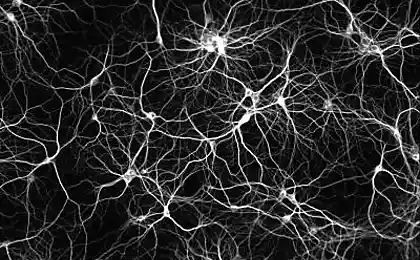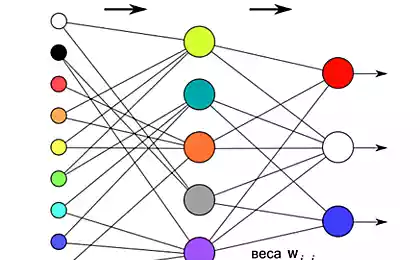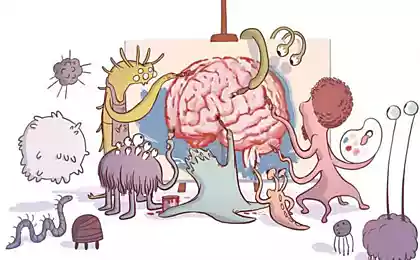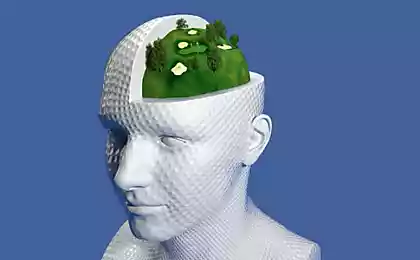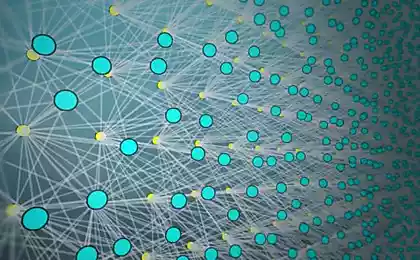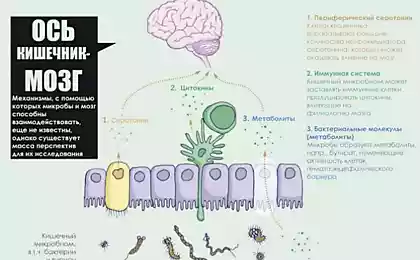653
Neurons enlightenment —what happens to the brain when you meditate

© Sara Andreasson
Meditation is a serious exercise for the mind and body. What happens to the brain during this process? Can meditation be dangerous for people with mental disorders?
In 1979, in one of the hotels in Pune city there was a misfortune: the person who just returned from Kathmandu after a 30-day meditation course killed himself. The correspondent of the magazine the Humanist Mary garden, who also stayed at this hotel, talked to him the day before. According to her, the man showed signs of mental disorder: he was friendly and didn't look upset. However, the next morning he jumped off the roof. Today, you can read the many truthful positive stories about attending meditation courses. Every year thousands of people go to special schools at home and abroad, to improve their quality of life, health and Outlook on the world. However, the history of meditation goes back more than 3000 years, and the aim of these practices was never something that today often seek and find in them people from the West: relaxation and stress relief. Initially, meditation was, and remains today a spiritual tool designed to purify the mind of impurities and disturbances and to help people to achieve inner enlightenment in the form in which he understands his religion of Buddhism.
Pro: vacation for your brain and attention to "I"
What is the meditative process from the point of view of brain physiology. According to experts from the U.S. and Tibet, conducting the study among people who constantly practice contemplative meditation during this process the neural activity in the centers responsible for the feeling of happiness, increased by 700-800%. The subjects which I started practicing recently, this value was markedly lower: only 10-15%. In his book, "Buddha, brain and neurophysiology of happiness," the researchers note that in the first case we are talking about people who have honed their skills over many years and a total of time to devote to meditation from 10 000 to 15 000 hours, which corresponds to the level of Olympic athletes. And still, with newcomers the same thing happened, albeit to a lesser extent.
Neuroscientists from the University of Oslo, Norway, found that while indirect meditation (it allows you to concentrate on breathing and send thoughts to wander) brain activity increases in areas responsible for creating the thoughts and feelings associated with one's own self. Scientists noticed that meditation-the concentration of such results has not given: in this case, the level of "I-centers" was the same as in a regular hotel. "These areas of the brain demonstrate the highest activity when we rest, says the study's author, specialist of the University of Oslo Sven the Davangere. Is a kind of basic operating system, a network of interlinked transactions, which comes to the fore, if the external tasks do not require attention. Curiously, indirect meditation activates this network is stronger than simple relaxation."
From the point of view of the physiology of the brain meditation is really similar to the rest. A group of scientists from Harvard have found in research is that during this process, the brain stops processing normal quantities of information. Characteristic of the state of active waking beta rhythm (an EEG rhythm in the range of 14 to 30 Hz with a voltage of 5-30 µv) fades away. This, apparently, allows the brain to recover.
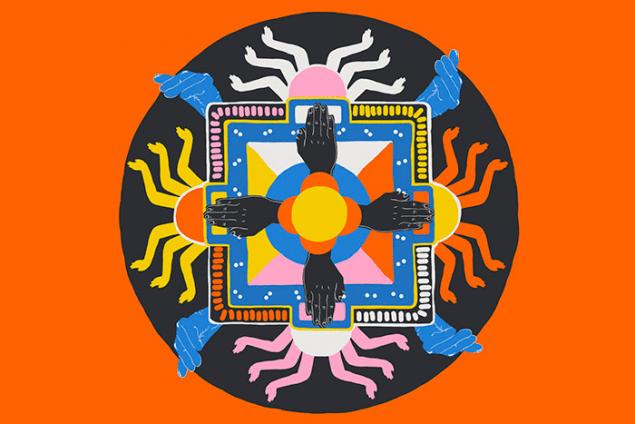
Experts from Harvard also conducted MRI brain scans of people who regularly engaged in meditation for 8 weeks. Assessing the state of the brain immediately after a 45-minute practice, they noticed that in many areas the activity has almost faded away. The subjects almost "turned off" the frontal lobes, responsible for planning and decision making, subsided parietal areas of cortex normally involved in processing sensory information and orientation in time and space, slowed the work of the thalamus, which redistributes the data of the senses, faded signals of the reticular formation, whose work allows us to bring the brain into a state of "combat readiness". All this allowed the brain to "relax" and deal with the processing associated with a private identity of the person, and not with the outside world.
Contra: excess of serotonin and borderlessness
Even the Dalai Lama is confident that with meditation you have to be careful: "Western people go into a deep meditation too quickly: they need to learn about Eastern traditions and to train more than they normally do. Otherwise there are mental and physical challenges."
Neuroscientists say that meditation really can badly affect mental health, especially if you are already suffering from some disorder. Dr. Solomon Snyder, head of the Department of neurophysiology at the Johns Hopkins University, warns that during meditation in the brain additionally releases serotonin, one of the main neurotransmitters which leads many systems of the body. This can be useful in mild depression, however, excess serotonin can cause paradoxical anxiety arising on the background of relaxation. Instead of relaxation of the person in this case gets a deep sadness or panic attack. In schizophrenia, according to Snyder, meditation in some cases can cause psychosis.
Dr. Andrew Newberg of the University of Pennsylvania in the course of his research found that meditation reduces blood flow in the back veretenenko gyrus, responsible for deep sensitivity and boundaries of the body. It would explain the feeling of "unity with the world", which often tell the people who have tried to imagine such practices. "If you block the work of the brain," says Newberg, "you will cease to feel where your personality ends and the world begins". "Meditation will not be useful without exception, all patients with emotional disorders, — said a colleague, Professor Richard Davidson of Wisconsin. For some people it may even be harmful." Davidson claims that the meditative practices "is able to change the state of a neural tissue in areas of the brain responsible for empathy as well as attention and emotional reaction." This, according to the Professor, can have a negative impact on relationships with others and lead to feelings of loss and loneliness, which can undermine a person's mood, even if he is mentally healthy.
In favor of the careful use of meditative practices are expressed not only neuroscientists. The Christoph Titmuss, a former Buddhist monk, who annually attends Vipassana in one of the Indian schools, warns that occasionally people are going through during such a course very traumatic experience, which subsequently require round the clock support, medication and even hospitalization. "Some experience a momentary state of terror from the fact that their brain is out of control, and afraid to go crazy," he adds. Far from the usual everyday reality of consciousness is difficult to recover from, so such a person usually need help from outside." However, Titmuss notes that, in his opinion, meditation induces such effects are not by itself. "The function of the meditative process as pointed out by the Buddha, is that he became a mirror, reflecting our essence," says the former monk.
Contraindications
Thus, if a person suffers from depression, schizophrenia, bipolar disorder or other mental illness, meditation can lead to a trouble: the fever, psychosis or even suicide attempt. In some schools of spiritual practices today, even used questionnaires that allow you to identify and weed out candidates among those who have faced a mental illness or knows that such acts were in his family history. However, nothing surprising in this. Meditation is a method of active use and training of the psyche, just as running is a way of training the heart and legs. If your heart or joints do not always work well, you need to run with caution or choose another type of load.
Source: theoryandpractice.ru
Fermented food tempeh — useful properties and applications
Survival school: 9 projects, conquer the world, despite the crisis

